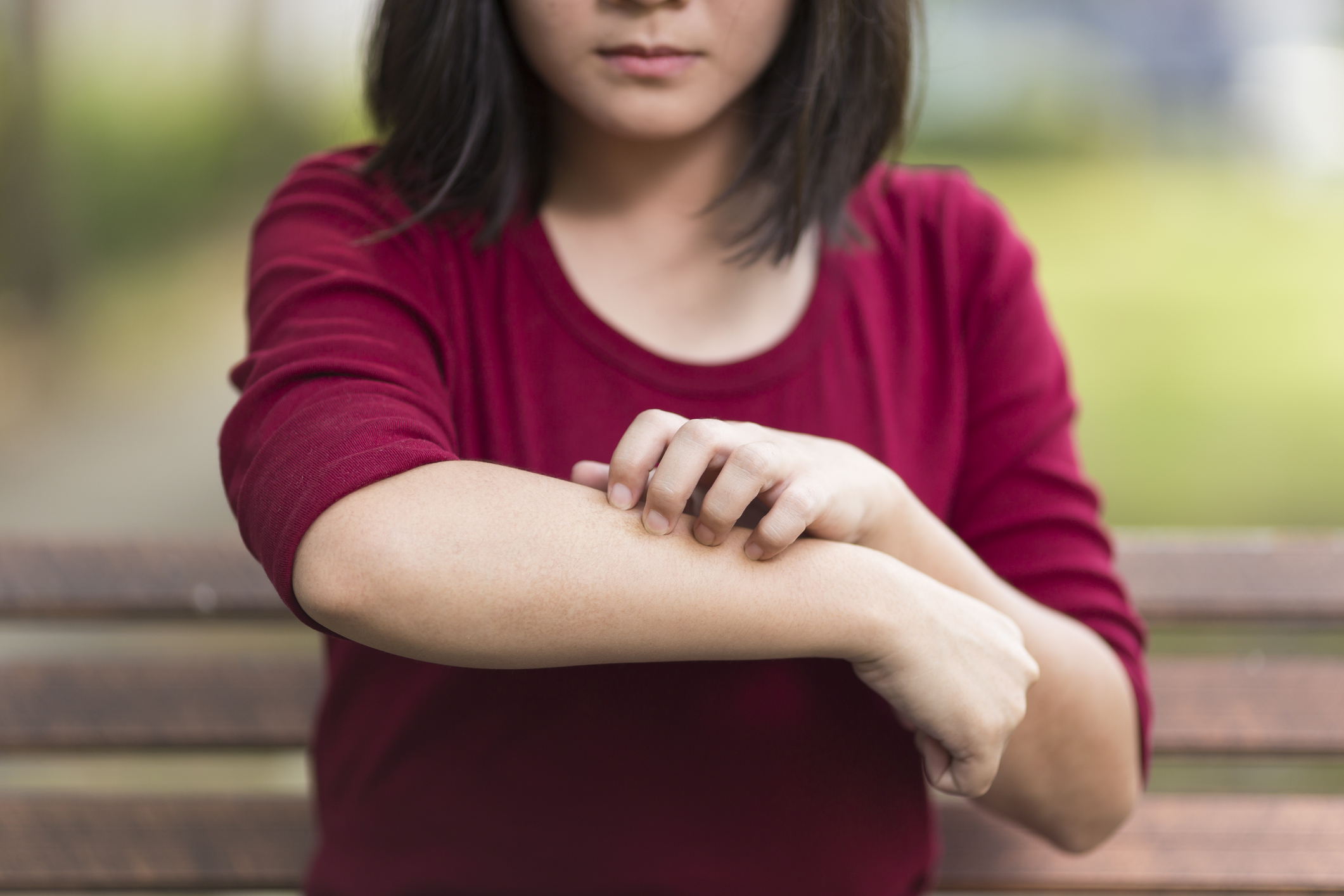
Eczema and dry skin are very similar skin conditions. It's not unusual for dry skin and eczema to appear separately or in conjunction with each other, but they are actually two very distinct conditions. I suffer from both and I can tell you, while each can be bothersome, dry skin is definitely easier to deal with in the long run.
Here's how to tell the difference between dry skin and eczema:
Causes
Dry skin happens when there is damage to the outer layers of skin, like sun damage, water exposure, or when skin care products contain drying ingredients that cause it to lose its ability to maintain normal moisture levels. Luckily, dry skin is usually a temporary condition that occurs occasionally. For example, I get dry skin during the winter months.
Eczema, however, has no exact cause, but is believed to be linked to a mild to moderate autoimmune disorder that causes the skin to have an allergic reaction to an irritant. The condition is commonly found in families with a history of asthma or allergies. Unfortunately, eczema can be chronic.
Both eczema and dry skin may also be the result of over-bathing or showering in hot water because they both dry out the skin.
What They Look Like
People who have dry skin have rough, dry, red patches on their skin that itch and usually feels tight and stretched. Typically affected areas of the body are the arms, hands, lower legs, abdomen, ankles, and soles of the feet. Dry skin is typically less painful and does not manifest with cracking, blisters, or sores.
Eczema is almost always severely itchy, which can cause cracked and bleeding skin. Sometimes the itching even starts before the rash appears. The rash itself commonly appears on the face, back of the knees, wrists, hands, and feet. The skin in these areas appears very dry, thickened, red, and sometimes scaly. Eczema can have fluid-filled blisters and red rashes that are not usually seen in regular dry skin.
How Is It Diagnosed?
Dry skin can be easily diagnosed by a visual examination of the skin by your physician. While it can appear on any type of skin at any age, elderly people, and those who frequently expose their skin to harsh soaps are more prone to developing the problem.
There are no tests to determine eczema, but your doctor can usually tell by looking at the skin and asking you a few simple questions.
Treatments
Dry skin can be treated with simple lifestyle changes, such as bathing in moderate temperature water and applying moisturizer. The same methods can be used to treat eczema, but most people will be advised to use eczema-specific topical ointments to reduce inflammation and relieve itching. Eczema patients should also avoid any food allergens that may cause flare-ups and wear non-synthetic fabrics, like 100% cotton, to keep the skin as comfortable as possible.







